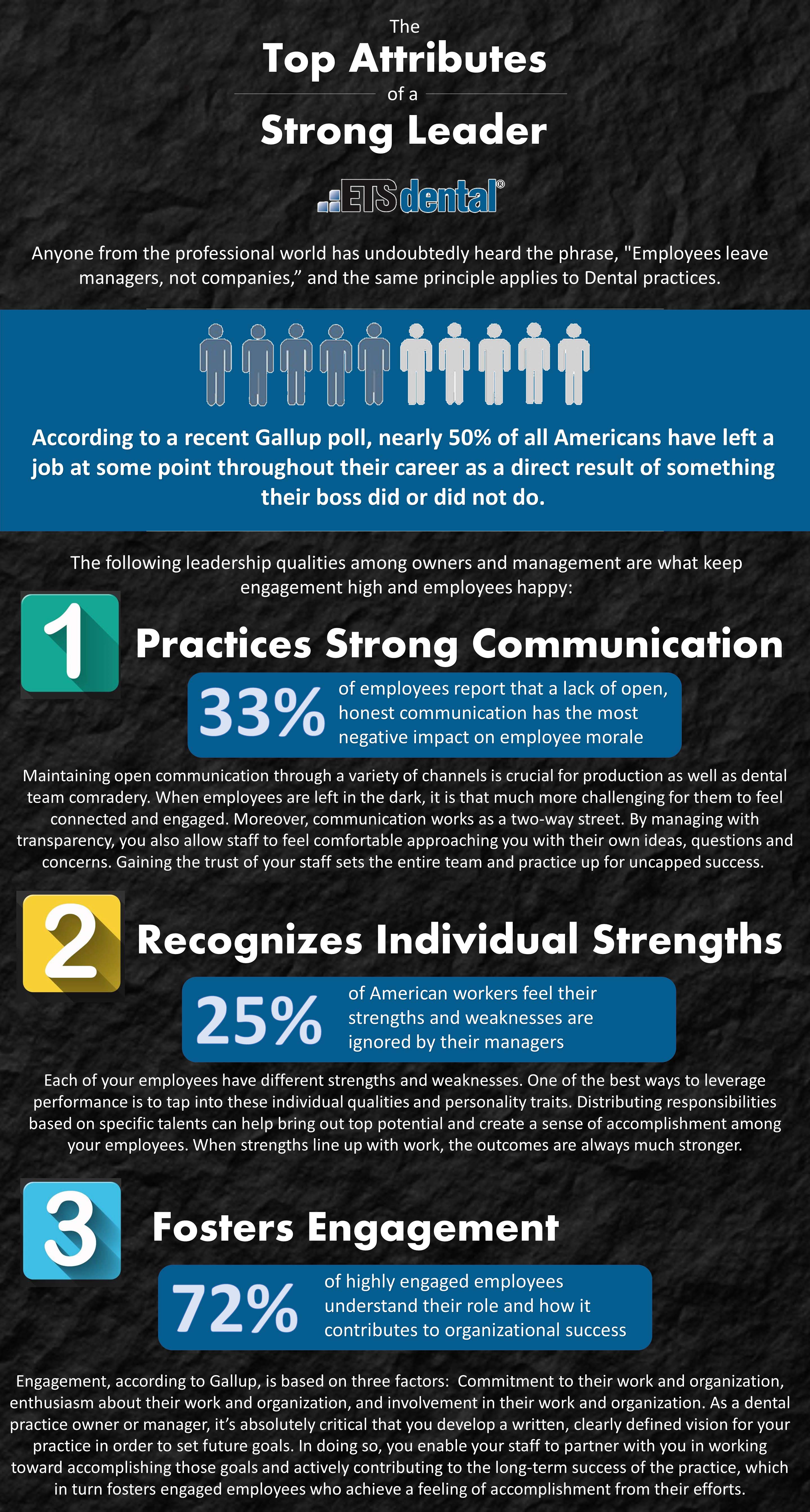Infographic: The Top Attributes of a Strong Leader

Anyone from the professional world has undoubtedly heard the phrase, “Employees leave managers, not companies,” and the same principle applies to Dental practices.
According to a recent Gallup poll, nearly 50% of all Americans have left a job at some point throughout their career as a direct result of something their boss did or did not do.
The following leadership qualities among owners and management are what keep engagement high and employees happy:
1: Practices Strong Communication
33% of employees report that a lack of open, honest communication has the most negative impact on employee morale. Maintaining open communication through a variety of channels is crucial for production as well as dental team comradery. When employees are left in the dark, it is that much more challenging for them to feel connected and engaged. Moreover, communication works as a two-way street. By managing with transparency, you also allow staff to feel comfortable approaching you with their own ideas, questions and concerns. Gaining the trust of your staff sets the entire team and practice up for uncapped success.
2: Recognizes Individual Strengths
25% of American workers feel their strengths and weaknesses are ignored by their managers. Each of your employees have different strengths and weaknesses. One of the best ways to leverage performance is to tap into these individual qualities and personality traits. Distributing responsibilities based on specific talents can help bring out top potential and create a sense of accomplishment among your employees. When strengths line up with work, the outcomes are always much stronger.
3: Fosters Engagement
72% of highly engaged employees understand their role and how it contributes to organizational success. Engagement, according to Gallup, is based on three factors: Commitment to their work and organization, enthusiasm about their work and organization, and involvement in their work and organization. As a dental practice owner or manager, it’s absolutely critical that you develop a written, clearly defined vision for your practice in order to set future goals. In doing so, you enable your staff to partner with you in working toward accomplishing those goals and actively contributing to the long-term success of the practice, which in turn fosters engaged employees who achieve a feeling of accomplishment from their efforts.










